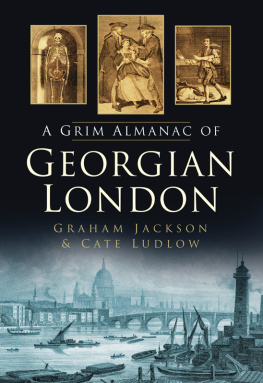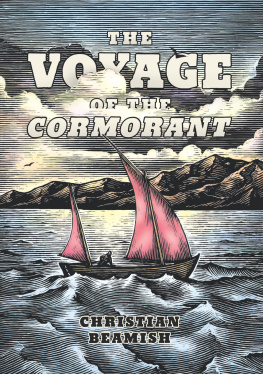This edition is published by PICKLE PARTNERS PUBLISHING www.picklepartnerspublishing.com
To join our mailing list for new titles or for issues with our books
Or on Facebook
Text originally published in 1832 under the same title.
Pickle Partners Publishing 2013, all rights reserved. No part of this publication may be reproduced, stored in a retrieval system or transmitted by any means, electrical, mechanical or otherwise without the written permission of the copyright holder.
Publishers Note
Although in most cases we have retained the Authors original spelling and grammar to authentically reproduce the work of the Author and the original intent of such material, some additional notes and clarifications have been added for the modern readers benefit.
We have also made every effort to include all maps and illustrations of the original edition the limitations of formatting do not allow of including larger maps, we will upload as many of these maps as possible.
HISTORY OF THE KINGS GERMAN LEGION,
BY
N. LUDLOW BEAMISH, F.R.S.
LATE MAJOR UNATTACHED
Hah! Du vielleich! Mein alter Kriegagefahrte, mit dem ich einst meinen letsten Bissen theilte, als uns Alles mangelte-oder Du, dem ich in der Schlacht vom Tumibamba das leben rettete?-oder Du, dessen Sohn ich befreyte, als eden die Feinde ihn niederhanen wollten? KOTZEBUE
VOL. I
PREFACE
The claims of the Kings German Legion to the notice of the historian are founded upon the distinguished services of that corps in the British army, during the whole extent of a period marked by the greatest exertions which England has ever made, and the most brilliant victories which her arms have ever achieved.
Deprived, by a tissue of untoward circumstances, of the means of redressing, in the ranks of her national armies, the wrongs which their country had sustained, the disbanded Hanoverian military sought that object in those of Britain, and sacrificing the ties of home and kindred to the more exalted feeling of national honour, became voluntary exiles in another land, and fought for the recovery of their own, under the banners of England.
The commencement and termination of the late war are coincident with similar periods in the history of the Kings German Legion. Throughout the whole of the peninsular campaigns they bore an active part, and few of those memorable engagements, whose names now stand commemorative of British valour, have not been honourably shared in by some part of the corps.
Such are the pretensions of the German legion to a place in history. It will now be right to shew the authenticity of the work which professes to record their services.
A few years after the reduction of the Kings German Legion in 1816, three distinguished members of the corps, whose long and conspicuous services had given them a personal knowledge of events well calculated to effect their object, determined upon writing a history of the legion, and the work was actually commenced. These officers had, however, proceeded but a short way towards the completion of their task, when, for various reasons, they were led to discontinue it. This circumstance was, several years after, mentioned to me by a zealous and gallant member of the late corps, who at the same time proposed that I should continue and complete the work, which, on his promising to provide me with the necessary materials, I undertook to attempt.
To this officer, {1} therefore, and to the distinguished individuals alluded to, {2} who, upon my intentions being made known to them, liberally placed the result of their labours at my disposal, are the public indebted for the documents which form the basis of this history. A residence of more than twelve months in Hanover enabled me to add to these, other important documents, and the same occasion afforded me the advantage of personally communicating with many of the principal actors in the scenes which are here described.
To the gracious interposition of his royal highness the Duke of Cambridge I am indebted for having obtained access to the Archives of the Hanoverian Guelphic Order, from which authentic source all accounts of the individual achievements of the non-commissioned officers and soldiers of the corps have been taken.
The principal returns have been specially prepared for the work by captain Lewis Benne, formerly attached to the staff of the Kings German Legion, and now to that of his royal highness the Duke of Cambridge. The original illustrations of the different uniforms were drawn by captain count Castell, of the third Hanoverian hussars.
Thus provided, it only remained for me to collate the several manuscripts, investigate the doubtful points, and unite the whole into an historical form.
Those who have attempted the compilation of history will readily believe that one part of this duty, namely, the investigation of facts, has not been unattended with difficulty. The frequent discrepancy between statements respecting the Kings German Legion in the several works on the Peninsular war, which have appeared in this country, and those that were furnished to me in manuscript by the officers of the corps, rendered it, in this case, peculiarly embarrassing; and I have been, in many instances, reluctantly obliged to reject the authority of standard works, whose authors, however correct in their relation of all matters connected with British regiments, have evidently been unprovided with that information which could alone enable them to be equally accurate with regard to the German legion. On these grounds a special account of the operations of the German troops during the late war may be allowed to claim an interest distinct from that which has been excited by the annals of the British army in general, during that period.
If, notwithstanding my efforts to be correct, some inaccuracies should have evaded my examination, I trust they will be attributed rather to that impenetrable veil with which truth is so often found encompassed, than to a want of diligence in prosecuting the inquiry; and that, if that extreme minuteness of detail, which in the history of a separate corps may, perhaps, be expected, be not invariably found, the words of the conscientious Barthelemy will be accepted in justification of such deficiencies:Jai mieux aime supprimer certains faits, que de ne les tablir que sur des conjectures. {3}
Having found, during my residence in Hanover, that a difference of opinion existed there, both with regard to the comparative merits of the Kings German Legion in the British army, and with regard to the manner in which the corps was disposed of after it had been placed under the Hanoverian government; feeling also that my own judgement was not unbiassed on these questions, I have studiously avoided entering upon them. The encouragement of party feeling is not the object of this work, and I have preferred leaving my readers, unschooled, to the simplicity of facts, to influencing their judgements with the prejudices of a partizan.















